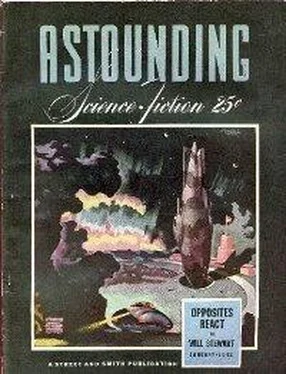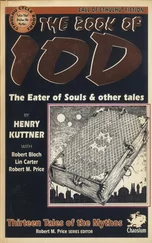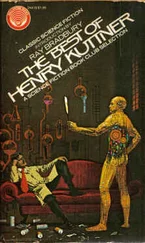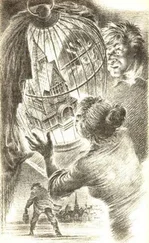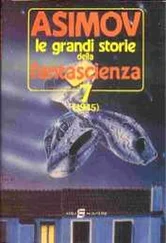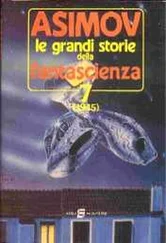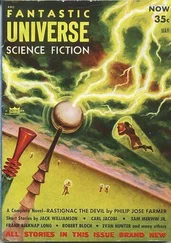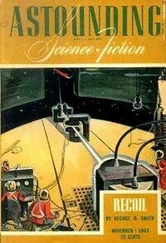Henry Kuttner - Time Locker
Здесь есть возможность читать онлайн «Henry Kuttner - Time Locker» весь текст электронной книги совершенно бесплатно (целиком полную версию без сокращений). В некоторых случаях можно слушать аудио, скачать через торрент в формате fb2 и присутствует краткое содержание. Год выпуска: 1943, Издательство: Street & Smith Publications, Inc., Жанр: Фантастика и фэнтези, на английском языке. Описание произведения, (предисловие) а так же отзывы посетителей доступны на портале библиотеки ЛибКат.
- Название:Time Locker
- Автор:
- Издательство:Street & Smith Publications, Inc.
- Жанр:
- Год:1943
- ISBN:нет данных
- Рейтинг книги:5 / 5. Голосов: 1
-
Избранное:Добавить в избранное
- Отзывы:
-
Ваша оценка:
- 100
- 1
- 2
- 3
- 4
- 5
Time Locker: краткое содержание, описание и аннотация
Предлагаем к чтению аннотацию, описание, краткое содержание или предисловие (зависит от того, что написал сам автор книги «Time Locker»). Если вы не нашли необходимую информацию о книге — напишите в комментариях, мы постараемся отыскать её.
Time Locker — читать онлайн бесплатно полную книгу (весь текст) целиком
Ниже представлен текст книги, разбитый по страницам. Система сохранения места последней прочитанной страницы, позволяет с удобством читать онлайн бесплатно книгу «Time Locker», без необходимости каждый раз заново искать на чём Вы остановились. Поставьте закладку, и сможете в любой момент перейти на страницу, на которой закончили чтение.
Интервал:
Закладка:
Time Locker
by Henry Kuttner
Galloway played by ear, which would have been all right had he been a musician—but he was a scientist. A drunken and erratic one, but good. He’d wanted to be an experimental technician, and would have been excellent at it, for he had a streak of genius at times. Unfortunately, there had been no funds for such specialized education, and now Galloway, by profession an integrator machine supervisor, maintained his laboratory purely as a hobby. It was the damndest-looking lab in six states. Galloway had spent ten months building what he called a liquor organ, which occupied most of the space. He could recline on a comfortably padded couch and, by manipulating buttons, siphon drinks of marvelous quantity, quality, and variety down his scarified throat. Since he had made the liquor organ during a protracted period of drunkenness, he never remembered the basic principles of its construction. In a way, that was a pity.
There was a little of everything in the lab, much of it incongruous. Rheostats had little skirts on them, like ballet dancers, and vacuously grinning faces of clay. A generator was conspicuously labeled, “Monstro,” and a much smaller one rejoiced in the name of “Bubbles.” Inside a glass retort was a china rabbit, and Galloway alone knew how it had got there. Just inside the door was a hideous iron dog, originally intended for Victorian lawns or perhaps for Hell, and its hollowed ears served as sockets for test tubes.
“But how do you do it?” Vanning asked.
Galloway, his lank form reclining under the liquor organ, siphoned a shot of double Martini into his mouth. “Huh?”
“You heard me. I could get you a swell job if you’d use that screwball brain of yours. Or even learn to put up a front.”
“Tried it,” Galloway mumbled. “No use. I can’t work when I concentrate, except at mechanical stuff. I think my subconscious must have a high I.Q.”
Vanning, a chunky little man with a scarred, swarthy face, kicked his heels against Monstro. Sometimes Galloway annoyed him. The man never realized his own potentialities, or how much they might mean to Horace Vanning, Commerce Analyst. The “commerce,” of course, was extra-legal, but the complicated trade relationships of 1970 left many loopholes a clever man could slip through. The fact of the matter was, Vanning acted in an advisory capacity to crooks. It paid well. A sound knowledge of jurisprudence was rare in these days; the statutes were in such a tangle that it took years of research before one could even enter a law school. But Vanning had a staff of trained experts, a colossal library of transcripts, decisions, and legal data, and, for a suitable fee, he could have told Dr. Crippen how to get off scot-free.
The shadier side of his business was handled in strict privacy, without assistants. The matter of the neuro-gun, for example— Galloway had made that remarkable weapon, quite without realizing its importance. He had hashed it together one evening, piecing out the job with court plaster when his welder went on the fritz. And he’d given it to Vanning, on request. Vanning didn’t keep it long. But already he had earned thousands of credits by lending the gun to potential murderers. As a result, the police department had a violent headache.
A man in the know would come to Vanning and say, “I heard you can beat a murder rap. Suppose I wanted to—”
“Hold on! I can’t condone anything like that.”
“Huh? But—”
“Theoretically, I suppose a perfect murder might be possible. Suppose a new sort of gun had been invented, and suppose—just for the sake of an example—it was in a locker at the Newark Stratoship Field.”
“Huh?”
“I’m just theorizing. Locker Number 79, combination thirty-blue-eight. These little details always help one to visualize a theory, don’t they?”
“You mean—”
“Of course if our murderer picked up this imaginary gun and used it, he’d be smart enough to have a postal box ready, addressed to… say … Locker 40, Brooklyn Port. He could slip the weapon into the box, seal it, and get rid of the evidence at the nearest mail conveyor. But that’s all theorizing. Sorry I can’t help you. The fee for an interview is three thousand credits. The receptionist will take your check.”
Later, conviction would be impossible. Ruling 8 7-M, Illinois Precinct, case of State vs. Dupson, set the precedent. Cause of death must be determined. Element of accident must be considered. As Chief Justice Duckett had ruled during the trial of Sanderson vs. Sander-son, which involved the death of the accused’s mother-in-law— Surely the prosecuting attorney, with his staff of toxicological experts, must realize that— And in short, your honor, I must respectfully request that the case be dismissed for lack of evidence and proof of casus mortis— Galloway never even found out that his neuro-gun ‘was a dangerous weapon. But Vanning haunted the sloppy laboratory, avidly watching the results of his friends’ scientific doodling. More than once he had acquired handy little devices in just this fashion. The trouble was, Galloway wouldn’t work!
He took another sip of Martini, shook his head, and unfolded his lanky limbs. Blinking, he ambled over to a cluttered workbench and began toying with lengths of wire.
“Making something?”
“Dunno. Just fiddling. That’s the way it goes. I put things together, and sometimes they work. Trouble is, I never know exactly what they’re going to do. Tsk!” Galloway dropped the wires and returned to his couch. “Hell with it.”
He was, Vanning reflected, an odd duck. Galloway was essentially amoral, thoroughly out of place in this too-complicated world. He seemed to watch, with a certain wry amusement, from a vantage point of his own, rather disinterested for the most part. And he made things—
But always and only for his own amusement. Vanning sighed and glanced around the laboratory, his orderly soul shocked by the melee. Automatically he picked up a rumpled smock from the floor, and looked for a hook. Of course there was none. Galloway, running short of conductive metal, had long since ripped them out and used them in some gadget or other.
The so-called scientist was creating a zombie, his eyes half closed. Vanning went over to a metal locker in one corner and opened the door. There were no hooks, but he folded the smock neatly and laid it on the floor of the locker.
Then he went back to his perch on Monstro.
“Have a drink?” Galloway asked.
Vanning shook his head. “Thanks, no. I’ve got a case coming up tomorrow.”
“There’s always thiamin. Filthy stuff. I work better when I’ve got pneumatic cushions around my brain.”
“Well, I don’t.”
“It is purely a matter of skill,” Galloway hummed, “to which each may attain if he will… What are you gaping at?”
“That—locker,” Vanning said, frowning in a baffled way. “What the—” He got up. The metal door hadn’t been securely latched and had swung open. Of the smock Vanning had placed within the metal compartment there was no trace.
“It’s the paint,” Galloway explained sleepily. “Or the treatment. I bombarded it with gamma rays. But it isn’t good for anything.”
Vanning went over and swung a fluorescent into a more convenient position. The locker wasn’t empty, as he had at first imagined. The smock was no longer there, but instead there was a tiny blob of—something, pale-green and roughly spherical.
“It melts things?” Vanning asked, staring. “Uh-huh. Pull it out. You’ll see.”
Vanning felt hesitant about putting his hand inside the locker. Instead, he found a long pair of test-tube clamps and teased the blob out. It was— Vanning hastily looked away. His eyes hurt. The green blob was changing in color, shape and size. A crawling, nongeometrical blur of motion rippled over it. Suddenly the clamps were remarkably heavy.
Читать дальшеИнтервал:
Закладка:
Похожие книги на «Time Locker»
Представляем Вашему вниманию похожие книги на «Time Locker» списком для выбора. Мы отобрали схожую по названию и смыслу литературу в надежде предоставить читателям больше вариантов отыскать новые, интересные, ещё непрочитанные произведения.
Обсуждение, отзывы о книге «Time Locker» и просто собственные мнения читателей. Оставьте ваши комментарии, напишите, что Вы думаете о произведении, его смысле или главных героях. Укажите что конкретно понравилось, а что нет, и почему Вы так считаете.
